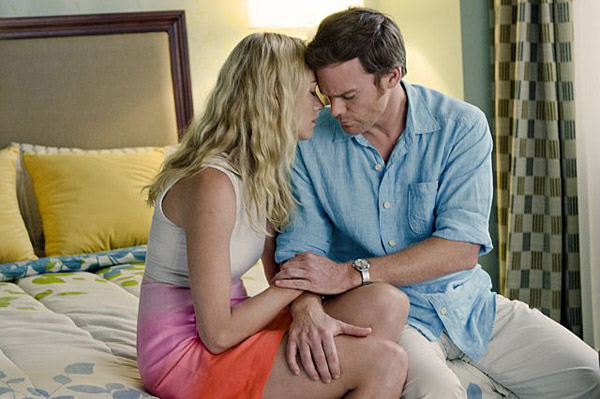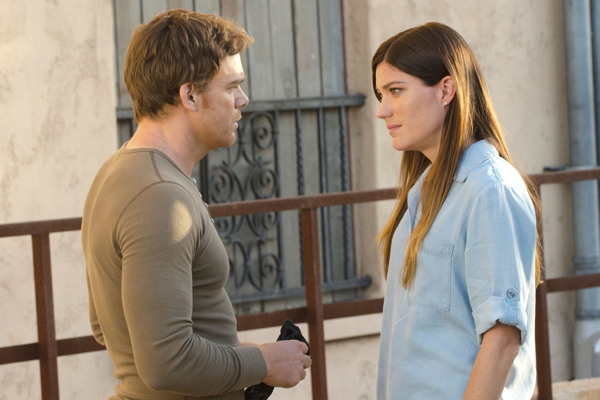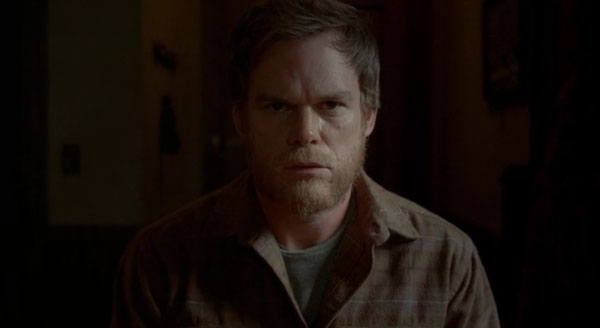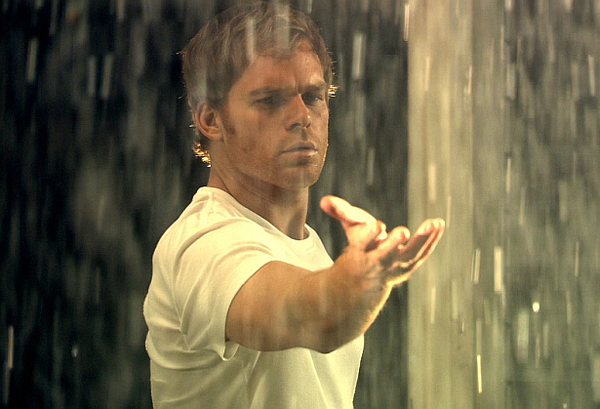The following contains spoilers for the series finale of Dexter
Last night, viewers tuned in to say goodbye to Dexter Morgan – our beloved vigilante serial killer who we rooted for consistently, in spite of the flawed moral logic. Brilliantly created by author Jeff Lindsay, and ushered to the end on Showtime by showrunner Scott Buck, Dexter defied all conventional ideas about heroes and villains; about right and wrong.
The main question going into last night’s series finale was clear, and essential to the entire scope of the show: How would we say goodbye? Would Dexter be killed in a tragic stroke of poetic justice, quietly embracing the reality that death is an unapologetic companion to irreconcilable sin? Or would we find Dexter’s ultimate redemption in his rebirth, smiling and bidding him a fond farewell as he walked into the proverbial sunset with Hannah and Harrison? As a barely recognizable Dexter stared blankly out the window and then at us, during our final moments with him, we knew. The answer to this question is neither.
After seeing how it all ended, what many viewers were left with was a mixture of sadness and anger the likes of which we haven’t seen since David Chase literally turned the lights out on Tony Soprano. It seemed incomplete, bleak, and void of positive resolution in wake of so much potential for Dexter to grab hold of a better life and, by doing so, redeem us all. But the man who spent eight seasons passing moral judgement on one killer after the next ultimately turned that judgement on himself, and the result was self-imposed purgatory; ongoing pain, because a quick death was more than he believed he deserved.
Historically, it was always a little crowded in Dexter’s head. There was the ghost of Harry, a somewhat comic personification of Dexter’s code and imposed moral structure; the superego, in essence, grounding his fabricated conscience (never kill the innocent) and indulging the ego ideal (murder the murderers for the greater good of society). Then there was the Dark Passenger, another personification of a psychological element, albeit one without its own body and voice, which Dexter believed became him in those moments where killing was necessary and inevitable. The id, with its compulsive need for nothing greater or more profound than quick and dirty gratification; an itch that needs to be scratched. But it just so happened, with Dexter, that itch was always murder. Finally, there was his inner-narrative. Separate from Harry and even the Dark Passenger, the narrative we were given throughout the show was a way to humanize the inhuman; Dexter’s own voice was a window into his ego – that go-between element which not only navigated the waters between Harry and the Dark Passenger, but between Dexter and the rest of the world.
In spite of all the criticism heaped onto this final season, what it gave us was a magnificent stripping down of all these things; integration and potential wholeness for a man who first fragmented himself in a pool of his mother’s blood.
With the introduction of Hannah in season 7, along with Deb’s constant challenges regarding the nature of who and what he really was, Dexter was finally forced to accept the Dark Passenger as part of himself, instead of an independent agent, subsequently owning his own darkness. Never was Dexter closer to being free from the proverbial devil on his back as he was when he realized the devil was himself. Harry, too, became less and less necessary over the course of the season 8, as Dexter discovered the woman who actually invented the code: Doctor Vogel. Her presence here is not something to be overlooked in terms of that final push for integration; it rendered Harry, and ghost Harry, more and more useless as the dissection of the code itself went beyond him and into social experimentation.
What we’re left with then is Dexter, himself, and his personal narrative. The narrative that used to speak so heavily on behalf of the Dark Passenger, what it wanted and what it needed without remorse, transformed into a voice that dug much deeper into the heart of this man, finding a spark of something we never saw before: hope.

So, how did we get to an ending where there was no more hope? Love and death, and the death of love.
After Deb discovered Dexter’s secret at the end of season 6, we all knew, deep down, it was a revelation that would ultimately take her life. Initially, the obvious suspicion was that Dexter would kill her himself, mitigating the risk to his own life and freedom. Because isn’t that what Dexter’s entire life was about? Protecting himself at all costs? The inclusion of Deb into the fold proved otherwise, as he stood by and with her through every breakdown, every reckless action, and even her sudden attempt to try and kill him herself. Through it all, it wasn’t only Deb’s unconditional love for Dexter that was tested and proven, but his for her as well. And it was this love, between a brother and his sister, that held within it the balance of salvation and damnation; its triumph or failure over chaos being the thing that would ultimately determine the future course of Dexter’s life. When it failed, and Deb was lost to the chaos he created, the answer was sharp and clear. To have Dexter walk away at that point and live a happy life with his lover and his son would have been a hollow choice. It would have been, for Scott Buck, a decision that disregarded what ultimately proved to be the core of the show, and of Dexter.
If he couldn’t save Deb, he couldn’t save anyone; including himself.

While it’s obvious this answer has been baffling, awful, and more than a little confusing for many, it’s the one that gives us back our souls; the thing we all but lost as we waded into the gray and cheered for virtuous murder. Dexter in exile sends a message that there are no easy escape routes from the disasters you create, and, sometimes, even a serial killer can decide there’s been one death too many.
In the end, we’re not given a voyeuristic view of Dexter hunting new prey, or continuing the same patterns as before. Those final shots aren’t of a man who’s incapable of change, or hasn’t changed; a monster reverting to pure sociopathy and destruction in the wake of his failure. Instead, we’re given the final manifestation of Dexter stripped down to nothing, with no voiceover to tell us his final conclusions about life, and no ominous score giving us a reason to imagine his future. It was cold, uncomfortable, and ultimately very sad.

Shouldn’t it be?

















Comments are closed.